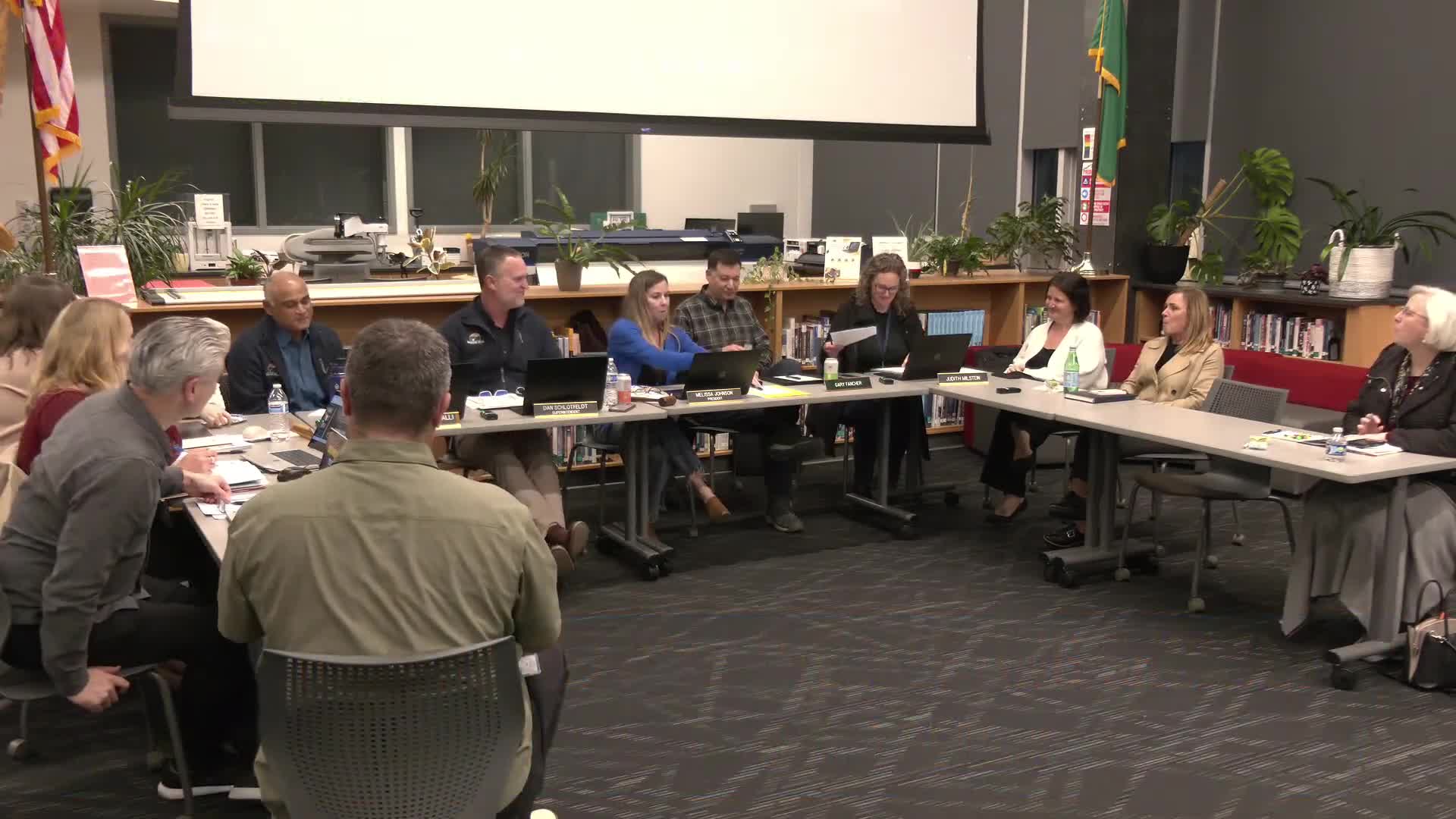School board narrows levy renewal talk; staff asked to draft resolutions near $1.50–$1.55 per $1,000 AV
Get AI-powered insights, summaries, and transcripts
Subscribe
Summary
Board members and staff discussed options for renewing expiring EP&O and technology levies. Staff presented baseline needs (MTSS implementation, state sales‑tax impact, preschool expansion and infrastructure) and optional enhancements; the board asked staff to prepare draft levy resolutions in the approximately $1.50–$1.55 per $1,000 assessed‑value
District staff told the board during a second work session on Oct. 23 that the expiring educational‑programs and operations (EP&O) and technology levies support roughly 20–21 percent of the district’s general fund and pay for staffing, software, devices, network infrastructure and some building safety technology. Staff recommended a renewal that would sustain current service levels and provide a modest increase to cover new state costs and to support an MTSS (Multi‑Tiered System of Supports) scale‑up; staff presented optional enhancements ranging from elementary instructional coaching and expanded K–5 art to a middle‑school seventh period and additional preschool seats.
Key staff points
• Technology levy: Staff said the current tech levy paid for major device refreshes over the last cycle; the next levy could be focused on sustain and refresh (including phone‑system replacement, camera/security upgrades and continued device lifecycle support). Staff emphasized fiber redundancy and data‑center links as an urgent infrastructure need; a limited discretionary pool of funds (proposed in the range of $30K–$50K per year) could test pilot programs (esports, drone/production programming, mixed‑reality learning, innovation grants).
• EP&O baseline: Staff identified items they regard as baseline requirements for a renewal — implementing a consistent K–12 MTSS screening and intervention system, funding the district share of a new state sales‑tax on services, middle‑school stability while enrollment shifts, and expansion of preschool seats. Staff estimated a baseline cost (illustrative) on the order of several million dollars across the levy window and presented additional higher‑priority options above that baseline.
Board discussion and preliminary direction
Board members reviewed comparative data from neighboring districts and noted that several nearby districts are proposing higher per‑pupil asks. Board members signaled they did not want to seek the statutory maximum levy in this cycle. After discussion of trade‑offs (taxpayer impact versus program improvements), members converged on a preliminary range for EP&O renewal in the neighborhood of $1.50–$1.55 per $1,000 assessed value. The board asked staff to prepare resolutions and draft ballot language reflecting that range for further review at the November board meeting, aiming for unanimous board approval so legal counsel can file in December if the board votes to move forward.
Why this matters: The EP&O and tech levies fund a significant share of district operations and classroom supports. Renewal amounts determine whether the district can sustain current services, expand preschool and MTSS, add elementary arts or coaches, or invest in more technology pilots. The board’s choice affects tax bills for property owners, the district’s ability to meet new state costs and the scope of services available to students.
Next steps: Staff will model final levy language and tax‑rate implications for the board’s November meeting and will meet one‑on‑one with board members who asked for more detail. The district plans to file levy resolutions with county election offices in December if the board adopts them.
(Numbers and preliminary levy scenarios in the article reflect staff estimates presented at the Oct. 23 work session; final ballot language was not yet adopted.)
